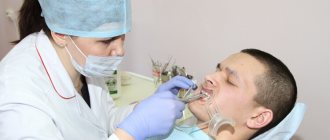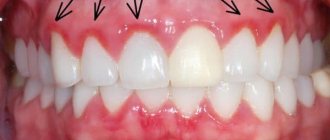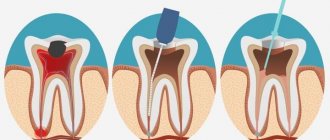Therapy itself as a science focuses on the study of diseases of internal organs. This study in particular concerns the cause-and-effect mechanism of diseases, their diagnosis and prevention. The diseases themselves may relate to the activities of the respiratory, cardiovascular, digestive, musculoskeletal, urinary systems, as well as the endocrine and hematopoietic systems. It is with a visit to him that any medical examination begins; it is with a visit to a therapist that a person who has health problems, the nature of which is not entirely clear to him, makes an appointment. Any ailment is a reason to contact this general specialist.
Online Booking with a Therapist
What is a therapist?
The profession of a therapist is perhaps the most ancient of all medical specialties. The Greek therapeutes, from which the word therapist is derived, literally means “carer of the sick.” Today the concept of therapist is interpreted quite broadly.
In medicine, a therapist is a profession in great demand. Its activity consists of the initial reception of patients and the prescription of appropriate treatment. Moreover, in many cases, a consultation with a therapist is the only thing a patient can do when visiting a clinic. Naturally, if specific treatment is needed, the therapist can write a referral to a specific specialist. By the way, it is in those cases when the patient does not know which doctor to contact with a problem that has arisen that the therapist, based on the specifics of this problem, determines the specialist whose consultation is most necessary in a particular situation.
But it is worth noting that a therapist is a fairly wide-ranging specialist, so within this area of medicine there is its own, more specialized division. A number of doctors who completed an internship in therapy subsequently chose narrower areas of diagnosis and treatment as their profession, becoming, for example, cardiologists, proctologists, rheumatologists, gastroenterologists, pulmonologists, and so on. The rest, on the contrary, do not want to direct their knowledge and skills only to “one internal organ”; they remain generalists.
In a narrower sense, a therapist is often identified with a local or family doctor, that is, a generalist capable of providing emergency care and prescribing treatment for a variety of pathological conditions.
A therapist who specializes in treating children is called a pediatrician.
In dental practice, a therapist is the attending physician, in contrast to a surgeon who performs surgical interventions and an orthopedist who deals with prosthetics. A psychotherapist, a specialist in therapeutic effects on the psyche, is often called a therapist.
There is also the concept of a chiropractor: a specialist who works with his hands on the joints and spine for diseases of the musculoskeletal system.
Specialization, career and prospects
The therapist’s specialization is extremely broad, because his competence includes solving issues of early diagnosis and treatment of various diseases. An appointment with a doctor in a therapeutic area allows you to determine the causes and mechanisms of development of a particular ailment, prescribe a competent diagnostic regimen and formulate an effective treatment approach.
The doctor must have a higher education in the specialty “General Medicine”. During his studies, the future doctor will have to, although not deeply, master the basics of almost all areas of medicine.
A therapist whose work is carried out within a clinic should not hope for a “dizzying” career, since he does not have great prospects. In this case, the doctor can gain experience and improve his knowledge.
The situation is different in the hospital. There, with perseverance, the required education and leadership qualities, the therapist has the opportunity to rise to the rank of head of the department, and subsequently to the chief physician.
Many ambitious doctors prefer a completely different path - they go to work in private clinics or open their own offices. There are also those who move into the category of “sales representatives” and work with their former colleagues “on the shop floor” as a seller/buyer.
What does a therapist do?
A therapist is a universal doctor, so the range of tasks he solves is much wider than that of specialists of a narrow profile. He carries out primary diagnostics, coordinates the patient’s interaction with other specialists, issues referrals for most examinations and procedures, and prepares medical documentation. The main tasks of this specialist:
- Initial reception of patients, collection of anamnesis, examination and other objective examination methods.
- Early diagnosis based on the results of examination of the patient and analysis of his complaints.
- Initial consultation, explaining to the patient the causes of his illness. A good therapist also acts as a psychologist, calming the patient and providing him with the necessary information about the disease.
- Prescription of required medications. Know the names of many medications, their features, advantages and disadvantages. Always be aware of pharmacological innovations. In his practice, he has to use a variety of treatment and rehabilitation methods: various diets, physiotherapeutic procedures, the mutual combination of various drugs and their effect on the body, and much more.
- Prescribing laboratory tests and instrumental examinations.
- In case of a complicated course or unclear genesis of the disease, a referral to a specialized specialist for more detailed diagnosis and treatment in accordance with his recommendations.
- Development of a unified treatment regimen taking into account the recommendations of various specialists.
- Making a decision about hospitalization.
- Assessing the risk of developing a chronic disease and taking measures to reduce it.
- Consultations regarding strengthening the immune system, preventing complications, relapses and the transition of the disease to a chronic form.
- Regular monitoring of patients with chronic diseases.
- Development of recommendations regarding changes in lifestyle, working conditions, spa treatment and others.
- Purpose of a comprehensive medical examination scheme during a medical examination or medical examination.
- Examination before vaccination and making a decision regarding its implementation.
Responsibilities
Therapeutic focus is a type of medical activity in which specialists receive patients, conduct an initial examination, prescribe conservative (drug) therapy, or write a referral to a highly specialized doctor.
The therapist belongs to the category of general practitioners, whose responsibilities include:
- conducting a primary medical examination;
- a thorough interview of the person, analysis of his complaints;
- direct examination of body parts, palpation of painful areas;
- use of objective research methods;
- filling out the patient’s medical record;
- identification of signs necessary for urgent hospitalization of the patient, hospital treatment or immediate surgical intervention;
- filling out sick leave;
- prescribing adequate treatment and selecting medications.
The work of a general practitioner cannot be done without certain skills and knowledge:
- basic knowledge in all areas of medicine;
- excellent memory;
- precise hand-eye coordination;
- well-developed fine motor skills of the fingers;
- patience and stress resistance;
- some kind of dedication;
- analytical mind, the ability to quickly analyze heard complaints and draw intelligent conclusions;
- attention to detail and observation skills;
- responsibility and communication skills.
Important!
Therapists do not perform any operations and in most cases provide treatment that involves special procedures or medications.
Since a therapist is the first doctor to whom people come for an appointment with any complaints, it is simply vital for him to improve his knowledge every day, improve his qualifications, and keep abreast of all the world's latest innovations in the field of medicine.
What diseases does the therapist treat?
The therapist is a general specialist, so he treats almost any internal diseases and pathologies that do not require surgical intervention. His area of competence includes approximately half of all known diseases, and if the disease is mild, without complications, then often the therapist does not have to join forces with a specialist in the relevant profile. Focusing directly on the diseases, we will highlight the following, the most common conditions with which patients turn to him:
- Colds, ARVI, flu.
- Infectious diseases - measles, scarlet fever, chicken pox, dysentery and others.
- Diseases of the lungs and bronchi, upper and lower respiratory tract, runny nose, sore throat, tracheitis, bronchitis, pneumonia.
- Allergic reactions, food intolerance, skin problems.
- Diseases associated with the activity of the cardiovascular system, high or low blood pressure, heart rhythm abnormalities, angina pectoris, heart failure (chronic), ischemia, varicose veins.
- General malaise, weakness, increased fatigue, chronic fatigue, sleep disturbances.
- Diseases of the gastrointestinal tract, stool disorders, nausea, heartburn, belching, flatulence and other dyspeptic symptoms.
- Poisoning of any nature, intoxication syndrome.
- Diseases of the spine, back and connective tissue, incl. and joint diseases, arthritis, arthrosis, osteochondrosis.
- Diseases of the kidneys, bladder - pyelonephritis, cystitis, stones and sand, problems with urination.
- Neurological problems, dizziness, convulsions, dystonia, neuroses.
- Diseases associated with metabolic disorders, endocrine system disorders, diabetes, obesity, goiter.
- Blood diseases, most often anemia, as well as leukemia, diathesis and others.
When should you see a therapist?
Most people do not like to visit medical institutions, postponing such trips as long as possible. But such an attitude towards your health is unacceptable. After all, the minimum amount of measures that can lead to a positive result with early treatment can result in heavy therapy and a long rehabilitation period if the patient, fearing doctors, comes late, when the destructive process has already started and has gone too far. At the same time, it is not always possible to return to former health due to the irreversibility of some processes.
After 40 years, it is recommended to regularly see a therapist, even if a person does not exhibit any painful symptoms. It is necessary for a man and a woman planning to become parents to consult a therapist; examination by him is also an integral part of pregnancy management; during its normal course, consultations with a therapist are prescribed during registration (before the 12th week) and when issuing an exchange card (after the 30th week).
A good reason to contact a therapist are the following circumstances and symptoms:
- Sedentary lifestyle, abuse of alcohol and tobacco products, excess weight.
- Unexplained weight loss.
- High degree of fatigue.
- The appearance of physical and psychological discomfort.
- Intention to adhere to a diet, therapeutic fasting.
- The presence of diseases in close relatives, the predisposition to which is genetically determined.
- A sharp deterioration in well-being, a constant feeling of heaviness, causeless fatigue.
- Frequent bitterness in the mouth, bad breath.
- Increased blood pressure, rapid or rare heartbeat (more than 100 or less than 50 beats per minute), interruptions in heart function.
- Pain in the chest and back, especially on the left side, radiating to the arm or under the shoulder blade.
- Pain behind the sternum, not associated with heart pathology, heaviness in the right hypochondrium.
- Swelling of the legs and other tissues.
- Shortness of breath after exercise or during sleep.
It is worth examining in more detail the most dangerous symptoms, which definitely should not be ignored by a person, and which should prompt him to seek advice from his doctor as soon as possible.
The first is if, against the background of a stable diet and the absence of radical changes in lifestyle, a person begins to lose weight.
This symptom is mainly characteristic of the presence of developing malignant tumors in the human body. Particularly sharp loss of body weight may be associated with cancer affecting the organs of the digestive tract, most often stomach cancer. In women, it can also be a malignant tumor on the ovaries. Second. If a person has a feeling of tinnitus, weak legs, general weakness, numbness of the upper extremities.
One of the reasons for such symptoms may be an impending stroke. Therefore, if a person begins to feel something like this, it is necessary to immediately call an ambulance, since this disease is very dangerous and can lead to irreversible processes in the brain tissue or even death. If a therapist is called in time or the patient receives emergency medical care (where a therapist is also on duty), then it is quite possible to avoid an attack and further negative consequences.
The third criterion that should force people to seek medical help from their local doctor or other specialist is that in the absence of intoxication due to poisoning, the presence of a black tint to the stool.
This rather alarming symptom may indicate internal bleeding. The loss of blood itself, especially intense, in itself poses a danger to human life. But this symptom can indicate an exacerbation of a number of diseases, for example, an ulcer or cancer in the digestive tract. In this case, time can go by minutes. The sooner a diagnosis is made and effective measures are taken to relieve the problem, the higher the patient’s chances of saving life.
The fourth “dangerous” sign is severe pain in the head, spreading to the neck and cervical vertebrae, manifested against the background of an increase in body temperature.
A set of these signs may indicate that the body is affected by such a dangerous disease as meningitis. Therefore, you should not put off going to the doctor, and in certain conditions it would be right to call him at home. With timely treatment, this disease can be easily treated with antibiotics.
Another sign is the appearance of sharp, painful headaches, the likes of which the person has never had to experience before.
If pain of this intensity occurs, you should immediately seek medical help. The cause of this painful condition may well be a cerebral hemorrhage. Another cause of headaches can be excessive dilation of cerebral vessels (or as doctors call vascular aneurysm). In both cases, there is a high probability of death.
But these are just some of the most common signs that should prompt you to visit a general practitioner, but there are many more of them. Therefore, it is better not to delay going to the doctor and at the first signs of the disease you should consult a specialized clinic.
How does a therapist work?
When visiting a therapist's office, you are unlikely to experience the fear that occurs when visiting a dentist and similar specialists. Here you will not find specific equipment and medical instruments - in this regard, one can even note a certain meagerness of the situation. It's a different matter when it comes to reception features. An appointment with a therapist can almost be associated with the tricks of an illusionist - just a few steps and the issue of the need to contact this specialist is resolved. It is for this reason that, depending on where the therapist sees you, you should not make hasty conclusions that a visit to this specialist is only an intermediate formality on the way to the necessary specialist. As we noted earlier, if you are lucky enough to find a good therapist and if your problem is not too serious, you may simply not need another specialist.
According to the standards, a local general practitioner must receive and serve 5 patients within an hour, that is, in a public clinic, 12 minutes are allotted for a conversation with one patient, examination, consultation, and writing out prescriptions. An appointment with a therapist begins with a questioning of the patient regarding the reasons for his visit (if this is the first visit), well-being, complaints, while the doctor studies the medical history, medical record, and collects an anamnesis. Data on subjective symptoms reported by the patient are supplemented by objective symptoms that are identified during the examination.
The therapist uses the following objective examination methods:
- Visual examination of the skin and mucous membranes.
- Measurement of blood pressure, pulse, temperature.
- Percussion - tapping cavities to determine the boundaries of organs, tissue density, wall tension, and in some cases - to identify painful areas.
- Palpation is palpation of tissues and organs, monitoring the patient’s reaction to this effect to determine the physical characteristics of tissues, identifying pathological formations and painful areas.
- Auscultation - listening to internal noises, usually using a stethoscope, phonendoscope and other acoustic instruments.
After an examination and initial consultation, the therapist makes a decision to prescribe special research methods - x-rays, ultrasound, CT, ECG, tests.
The diagnosis and recommendations regarding treatment, medication and physiotherapy, are recorded in the medical record. If during the initial examination indications for hospitalization, hospital treatment or surgery were identified, the therapist issues an appropriate referral. If hospitalization is not required, the patient is given a re-admission date, before which he must undergo all tests.
The decision to refer the patient to specialized specialists is made either based on the results of the initial examination or after receiving the results of additional studies.
If the nature of the disease is unclear and the therapist refers the patient to several specialists to clarify the diagnosis and/or prescribe treatment, then he studies their findings and prescriptions and coordinates the course of treatment. Based on the data of the initial examination, analyzes and instrumental studies, and the conclusions of narrow specialists, the therapist draws up a single pathogenesis, makes adjustments to the treatment regimen, and brings together various recommendations.
The therapist, taking into account the patient’s condition, sets dates for repeated appointments, guides the patient until his recovery (or another outcome) and issues a sick leave certificate. If a chronic disease is identified, the patient is recommended to have regular visits to a therapist with a certain frequency.
A therapist is one of the most popular medical specialties; he can be called doctor No. 1, since it is this specialist that most patients turn to first, and if the therapist is sufficiently qualified, the help of other doctors may not be needed. A significant percentage of patients served by physicians are physicians. This doctor performs a number of important functions, he has a huge responsibility: early diagnosis, which is the key to successful treatment, prescribing adequate therapy, deciding on the advisability of involving other specialists, hospitalizing the patient, creating a unified clinical picture based on disparate data obtained from different sources.
What tests should you take when visiting a therapist?
When visiting a medical facility, one examination by a specialist is not enough. To make a correct diagnosis, the doctor needs to have in hand a complete picture of the disease, which can be clarified by some laboratory tests. So what tests should you take when visiting a therapist? So that the doctor can get a complete picture of the patient’s health status.
Among the first, the patient will have to undergo the following tests:
- Clinical examination of urine to assess the condition of the patient’s excretory system.
- Liquid density.
- Its transparency and presence of impurities.
- Presence of sugar in urine.
- Protein.
- For acetone.
General clinical blood test. Taken from the phalanx. It makes it possible to determine the presence or absence of an inflammatory process, anemia, blood diseases, and so on in the body. Allows you to determine numerical indicators:
- Leukocytes.
- ESR (erythrocyte sedimentation rate).
- Other parameters.
- Analysis of feces for the presence of helminths (if necessary).
A blood sugar test is performed on an empty stomach. Makes it possible to determine the level of sugar in the blood (refusal or confirmation of the presence of a patient’s history of diabetes mellitus).
If necessary, the specialist has the opportunity to prescribe additional tests and studies.
Features of the profession
In order for a doctor to be considered a professional, he has to not only study well, but also try to carefully study everything necessary for the profession. It is very important that the specialist gains practical experience, which will allow him to treat better and better.
The learning process lasts at least 6 years and does not end until the end of your career. It is worth saying that the studies will be difficult, which starts from the 1st year of university.
This is due to the fact that you have to study several areas of medicine at once. And they will all be very difficult. Moreover, it will not be possible to relax, since all the lectures are very important, because someone’s health and even life will depend on experience and knowledge.
Only those who are willing to put all their free time into studying and the desire to become a good doctor can achieve success and become a professional.
What diagnostic methods does the therapist use?
But in addition to laboratory tests, the doctor can obtain a complete picture of the disease using other methods of functional diagnostics. And the completeness of the information received depends on how completely the patient’s body is covered by the examination. So what diagnostic methods does the therapist use?
The most popular examination methods are:
- Ultrasound examination of internal organs.
- An electrocardiogram shows the condition of the heart.
- Fluorography is required. Helps diagnose tuberculosis, changes in the pleural zone, the presence of benign or malignant neoplasms.
- Digital radiography.
- Digital mammography.
- CT scan.
- Magnetic resonance imaging.
All these studies, and some others, are now put at the service of human health and allow the therapist to make a correct diagnosis in a shorter time and promptly begin to stop the disease.
What kind of profession
Now it is almost impossible to characterize the profession of a modern doctor using a few words. These are no longer ancient times, when going to the barber you could pull out a tooth.
Modern medicine has more than two hundred different specializations of doctors.
Well, within the framework of this article we will reveal three main medical areas:
- Psychiatric . Specialists who study and correct human behavioral reactions to the world around them;
- Therapeutic . These are specialists in inpatient treatment, they deal with inoperable methods of influencing the body for its recovery.
- Surgical . These are doctors who use surgical instruments to restore or remove the patient’s internal organs;
There is also a pathoanatomical direction, but such specialists already work with the dead. Their responsibilities include performing an autopsy, examining internal organs, and determining the cause of death.
Advice from a general practitioner
The local doctor, who is also a therapist, is the first medical person a person has to deal with when health problems arise. It is not without reason that even before the revolution, every family (that could afford it) had its own family doctor who observed all its members. And it was he who gave advice and recommendations to avoid many health problems. Advice from a general practitioner will help you completely forget about potential diseases and reduce the severity of those that a person already suffers from.
- It is imperative to reconsider your diet. A nutritious balanced diet is the key to good health! Adhering to this statement, it is necessary to monitor what foods are included in the diet. The daily menu should be balanced. It must contain the required amount of minerals, trace elements and vitamins. It is necessary to maintain an optimal balance of hydrocarbons, fats and proteins. You should avoid “harmful” foods and dishes as much as possible. Vegetables and fruits are the basis of the menu.
- You should lead a healthy lifestyle, giving up, if possible, bad habits: smoking, consumption of alcoholic beverages and drugs.
- You should not self-medicate. Only a specialist, after establishing a diagnosis, is able to prescribe adequate treatment.
- It is worth taking a vitamin course periodically. Today, there are practically no problems with choosing such drugs, since the pharmacological market offers a fairly wide range of such products.
- It is worth making a habit of regularly visiting a medical center. A preventive examination by a specialist will allow you to detect and stop the problem early.
- Not the least place in protecting the body from various diseases is given to the psychological state of people. Constant irritability and aggression will not add health, but, on the contrary, will take it away. Whereas a positive attitude, an optimistic mood will bring back the colors of life and allow you to cope with the disease that has struck you much faster.
Physical inactivity is a direct path to many diseases. Therefore, doctors recommend their patients not to ignore exercise. It is advisable that physical activity be varied. For example, you can walk to work, dance and swim. Such activities will raise the threshold of endurance of the human body higher, strengthen the body's defenses, and improve the functioning of metabolic processes. Outdoor activities are especially welcome. Outdoor winter sports are good.
You should harden your body. But this must be done gradually. If a pampered person immediately decides to become a walrus, then nothing good will come of it. Most quickly, such zeal will end in pneumonia or bronchitis. Hardening methods include:
- Cold and hot shower.
- Walking barefoot on surfaces of various textures is a good massage for acupuncture points, of which there are a great many on the foot.
- Visiting the bathhouse, sauna, and swimming pool.
- Wiping the body with snow.
- Pouring with ice water.
In order not to harm the body, you can contact a specialist who will develop a hardening system individually, for a specific person, taking into account the characteristics of his body.
Always remember - you should not ignore the body's signals about disturbances in its functioning. At the first, even minor, symptoms of an impending disease or the appearance of discomfort, you should immediately seek advice from your local doctor. The therapist will help you find the cause of the ailment, establish a diagnosis, prescribe effective treatment or preventive measures, and, if necessary, refer you to a more specialized specialist. Only through the joint efforts of the doctor and the patient can the maximum effectiveness of treatment be achieved and a positive result of therapy be expected. Trust your doctor and be healthy!
Medical specialties











